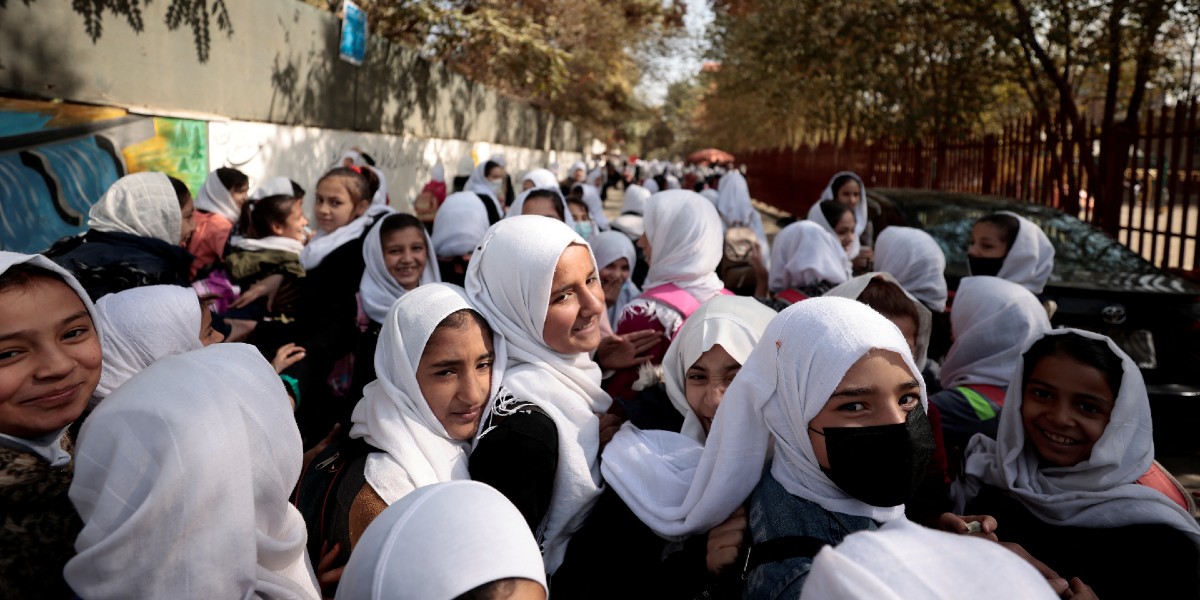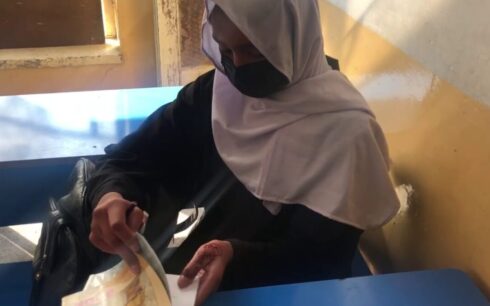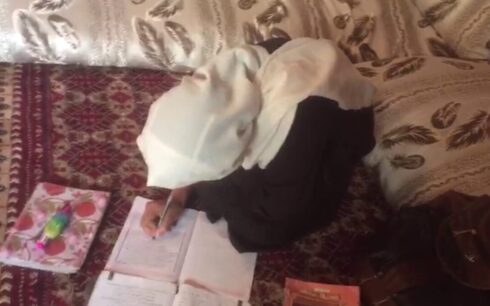As annual school exams commence, apprehension looms among female students from secondary schools in Afghanistan regarding the uncertainty surrounding their educational paths.
The Taliban’s persistent ban on educating girls beyond the sixth grade has fueled concerns among students, raising doubts about their ability to attend school in the upcoming year.
Laila, an 11-year-old student currently in the sixth grade, expressed her worry about the potential refusal by the Taliban to allow her entry into the seventh grade. Tens of thousands of students, like Laila, fear that their aspirations may be shattered if the ban persists. The Taliban imposed the ban on teenage girls above the sixth grade after assuming power in 2021.
Zainab, another sixth-grade student aspiring to become a doctor, faces the prospect of migrating to Iran or Pakistan if the education ban continues. She voices her concerns, stating, “I am worried about my future.”
“I’m currently in sixth grade, and my aspiration is to move on to seventh grade. Unfortunately, due to the restrictions imposed by the Islamic government (Taliban), progressing to the next grade isn’t permitted. This prohibition is concerning for me, as my dream is to become a doctor. Both my parents are doctors, and if I’m unable to pursue my education here, they may have to consider relocating to Iran or Pakistan. However, there’s uncertainty since these places may not be welcoming to Afghans like us. The uncertainty about my educational path and the potential challenges ahead are causing me anxiety about my future,” she said.
Muzhda, another student, shared similar concerns about her educational journey.
“I wanted to become a doctor, and now that I cannot go to school, I have no idea how to continue my education,” she said.
Despite global and domestic reactions, the Taliban’s decision to restrict education for girls above the sixth grade remains unchanged, presenting a significant economic, social, and cultural challenge for Afghan society.
In a meeting with a member of the Strategic Council on Foreign Relations of Iran, forme President Hamid Karzai emphasized the urgent need to reopen schools and universities for girls, highlighting their importance for the prosperity and progress of Afghanistan.
Despite challenges posed by the Taliban’s restrictions, some university professors argued that online schools are not a suitable alternative due to limited internet and smartphone access for students.
Basir Ahmad Danishyar, a university professor, stated, “For almost three years, the prohibition on women’s access to education has posed substantial economic, social, cultural, and political challenges in society. This has led to a surge in citizens fleeing, brain drain, and the forced migration of numerous families. We hope that the current authorities will address this issue promptly by taking action to reopen schools.”
The closure of schools for female students above the sixth grade has prompted calls for action from the international community, urging authorities to address the educational crisis and reopen schools for the betterment of Afghanistan’s society. It has been almost 800 days since the Taliban prohibited girls from attending schools above the sixth grade. Women are also banned from university education as well as working for non-government organizations.





